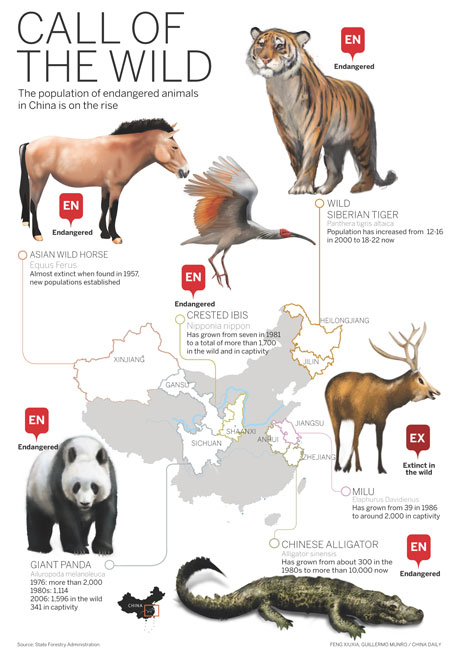Endangered lists enjoy healthy rises in numbers
 0 Comment(s)
0 Comment(s) Print
Print E-mail China Daily, May 22, 2013
E-mail China Daily, May 22, 2013
 |
The Chinese government led a month-long clampdown on wildlife crime earlier this year, dubbed Cobra. It brought together police, customs and wildlife officers from 22 countries in Asia, Africa and North America.
Through the operation, 6.5 tons of ivory, 1.6 tons of Tibetan antelope hides, 22 rhino horns, 10 tiger hides, as well as other protected animal and plant species and products derived from them, were confiscated.
Yan said not all trades are illegal. Wild plants and animals from tens of thousands of species are caught or harvested from the wild and then sold legitimately as food, pets, ornamental plants, leather, tourist ornaments and medicine.
"There is a huge difference between the legal and illegal ones," said Yan.
He said illegal wildlife consumption and trading is a result of the public lacking protection awareness.
"Animal rights organizations and activists can play a role in educating the public and supervising illegal activities," Yan said.
A large number of animal protection activities were carried out by NGOs and green activists. Deng Fei, a former journalist now better known for her role as an animal rights activist, has started major migrant bird rescue activities nationwide, raising public awareness.
"The public should be more aware of the importance of protecting these endangered species and sustaining the ecosystem," said Fang Dan at Animals Asian Foundation.
"We hope to make a difference, through our efforts, in influencing policymaking and arousing public awareness."






Go to Forum >>0 Comment(s)